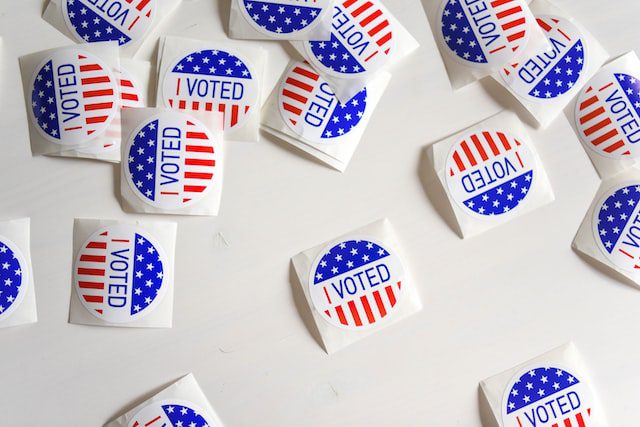Voting and Your Health
Voting and your health are two things that you might not think are synonymous, but it’s an important relationship because it directly impacts your health and the health of your community.
So, what is the relationship between voting and your health?
Did you know that young people who vote (teens, young adults) are more likely to have better health over their lifetime? According to the UCSF Voice Project, “even after correcting for selection bias, youth voting predicts increased personal and household income levels, higher levels of education, abstinence from heavy drinking and smoking, and fewer symptoms of depression.”
And what about older adults? A study performed by Carnegie Mellon University found that in adults over 50, those who put in 200 volunteer hours or more in the previous year were less likely to develop high blood pressure and had a reportedly greater increase in psychological well-being.
Researchers at the Harvard School of Public Health created a “Women’s Political Participation Index” that examined the status of women in all U.S. states, which found a one-unit improvement in the index included voter registration and turnout and yielded 7.3 fewer deaths per 100,000 women. UCLA college students with a higher level of civic engagement reported fewer symptoms of depression, which also shows the health benefits of being involved in civic engagement.
Social determinants of health
The idea that our health is highly determined by social factors has been a central idea within public health. Social determinants of health (SDH) are non-medical factors that influence health outcomes, according to the World Health Organization (WHO). The American Medical Association (AMA) House of Delegates adopted the resolution calling voting a social determinant of health. SDH accounts for 30-50% of health outcomes.
Examples of SDH which can influence health equity in positive and negative ways:
- Education
- Income
- Unemployment and job security
- Food insecurity
- Working life conditions
- Housing, basic amenities, and the environment
- Early childhood development
- Social inclusion and non-discrimination
- Structural conflict
- Access to affordable health services of decent quality
These are examples of social determinants that can be even more important than health care or lifestyle choices in influencing health.
More voting access
According to the Health & Democracy Index, “when communities vote, they influence policy decisions that have a big effect on their health.” The overall findings concluded that more voting access equals better health outcomes, and less voting access creates worse health outcomes. When communities come together to create higher voter participation, it produces a stronger social cohesion and sense of belonging, which leads to better health.
Did you know?
- Your vote makes an impact.
- Local elections are often decided by a small number of voters. You have a say when it comes to many things, including the prices of medication and the cost of health insurance that not only affect you but your friends and family as well. The impact on our community can be immediate. We encourage you to utilize your voice and advocate for your community.
- Your vote is powerful.
- Your vote is a powerful tool that addresses and improves many issues that you care about, including your health.
Voting is important to you and our community. As a unique individual, you have your own healthcare needs and you can make your voice heard. To make it easier, we have provided important links for you below.
North Carolina Voter Registration Application
North Carolina Absentee Ballot Request Form for 2022
Caswell County Board of Elections 2022 General Election Early Voting Schedule
Rockingham County Board of Elections 2022 General Election – One Stop (Early) Voting Schedule

